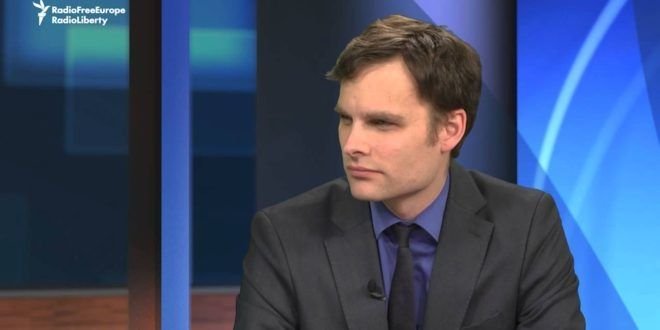Jozwiak: EUHR Borrell’s Visit “the Last Attempt”
According to the Europe editor for Radio Free Europe/Radio Liberty, Rikard Jozwiak, voices are heard in Brussels for the first time, questioning whether the Georgian government may be deliberately trying to get rejection of the candidate’s status from EU, in order to blame Brussels for not being reliable and never really intending to accept Georgia. This view voiced previously by the Georgia opposition seems to be shared by at least some EU officials.
In the article, Jozwiak discusses the prospects of Georgia obtaining this status in light of the recent announcement by the ruling Georgian Dream government of its intention to impeach President Zurabishvili, which he writes ‘took Brussels by surprise’. He notes that Salome Zurabishvili is well respected in Brussels and beyond, and that her efforts to build support for Georgia by visiting EU member states are seen as “quite normal”, “expected” and “encouraged”.
But this latest drama over Salome Zurabishvili raises new questions. He quotes an EU diplomat saying: “The acceptable bar for candidate status in Georgian case is already very low and they may not even reach it.” And then a rhetorical question: “How many more goals are they going to score in their own net?!”
The new political turbulence in Georgian political life is taking place against the backdrop of the forthcoming visit of the EU’s top diplomat, Josep Borrell, who arrives in Tbilisi on September 7.
Despite the rather unclear situation regarding Georgia’s candidacy prospects, there have been constant signs that the EC would still issue a positive recommendation on granting status to Georgia, writes Jozwiak. However, the question now is how the recent political drama will affect Georgia’s aspirations to join the European Union.
Georgian government’s record in implementing of EU priorities, as well as general lack of political will and enthusiasm when it comes to the efforts to secure candidate’s status are cited as problematic. Recent events, such as the attempt to pass a “foreign agents” law and the resumption of flights between Russia and Georgia, as well as the PM Garibashvili’s statement linking Russia’s invasion of Ukraine to NATO enlargement, have caused additional concerns in Brussels.
The author believes that the visit on September 7 of the High Representative Borrell to Georgia will be important in determining the outcome of the process. In Jozwiak’s view, the recent spat between the Government and the President means Borrell is no longer going to listen to lectures from the GD government representatives on “how Georgia is being treated unfairly” noting that this is essentially “a last attempt in the circumstances when goodwill towards Tbilisi is “almost non-existent”.
The author notes that there are still convincing arguments for granting the country candidate status. There are also concerns that while there is now a will for EU enlargement and the bloc is considering how to accommodate it, this window of opportunity may close next year when the EU moves into the mode of European Parliament elections and the selection of a new Commission and President. Jozwiak notes that, in general, candidate status has lost some of its value, especially since it was granted to Bosnia-Herzegovina without it showing any significant progress. Moreover, Brussels does not want Georgia to fall too far behind Moldova and Ukraine, whose prospects are much more clear.
According to the author, the most likely scenario is that Georgia will be offered candidate status with reservations, meaning the country will have to fulfill certain conditions in order to proceed to the next stage of the start of accession negotiations. Mostly they will relate to implementation of the EU’s 12 unfulfilled or partially fulfilled priorities. Jozwiak notes that measuring the implementation of these priorities will not be an easy task, as they are rather vague, and which gives the EU room for maneuver.
However, the new element mentioned by the journalist with extensive EU expertise, is that it is likely that some member states might put forward additional requirements in order to proceed to opening of accession negotiations, such as the fair conduct of the parliamentary elections in the autumn of 2024.
The author concludes that the decision will ultimately be a political one, noting additional nuance which has to do with the position of Hungary, which may demand Georgia’s status in exchange for the green light to start accession talks with Ukraine. Given the close ties between the Orban and GD governments [the Georgian foreign minister just yesterday paid another visit to Budapest], this scenario does not seem unrealistic.
Also Read:
- 05/09/2023 – EUHR Borrell Backs Enlargement Timeline ahead of Georgia Visit
- 23/08/2023 – Tbilisi Not Present at Athens “Enlargement” Meeting
This post is also available in: ქართული Русский
